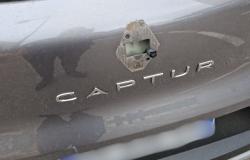Engine maker CFM’s reluctance to significantly increase deliveries to Airbus while Boeing, its other key customer, is embroiled in tensions, likely contributed to Airbus’ decision to delay planned increases in jet production, multiple sources said.
On Monday, Airbus issued a stern warning about its 2024 earnings targets, following a downward revision to its delivery targets, due in part to shortages of engines and other parts. The stock fell more than 9% in the session following the announcement.
The star of commercial aircraft engines is CFM International, a thriving venture between GE Aerospace and Safran. It manufactures LEAP engines, which equip all B737 MAX and a little more than half of the Airbus A320neo family, the best-seller in the aeronautical world. The other engine manufacturer of the A320neo is Pratt & Whitney (a subsidiary of RTX Corporation, better known by its former name, Raytheon), which has experienced numerous industrial setbacks. Quality problems on the PW1000G reactors have led to massive recalls and additional costs running into the billions for RTX.
Assembly of the LEAP (Safran)
To ramp up its production, Airbus contacted the two engine manufacturers, but more particularly CFM, considered more reliable. The pan-European group would have liked LEAP’s market share to increase from around 60% to 75%. But CFM is having difficulty increasing the pace on its side. The market share of the GE/Safran joint venture depends on a triangle of factors: the production rate of Airbus, the production rate of Boeing and the contribution of Pratt & Whitney, CFM’s rival, to the production of Airbus. Before the pandemic, these factors were roughly in balance, although CFM’s share of Airbus deliveries was steadily increasing due to industrial problems at P&W.
Today, the industry is faced with not one, but two permanent stresses: the deep crisis affecting Boeing and the upheavals in B737MAX deliveries, and the chronic bottlenecks at Pratt & Whitney. CFM does not deliver the same engines to the two manufacturers: the LEAP-1A is dedicated to Airbus, while the LEAP-1B equips Boeing (and the LEAP-1C equips COMAC’s Chinese C919, but which only represents a small portion of the orders).
Pussyfoot
“CFM will try to satisfy both sides, but ultimately it will never do anything that structurally disadvantages Boeing.“, its first and main partner, according to a senior industry source. Another person familiar with the engine maker said its reluctance to unduly harm Boeing might not be expressed directly with Airbus, but would be taken into account in internal discussions A CFM spokesperson said: “The supply chain environment remains challenging and we are working to meet demand for LEAP engines from all of our customers.“. He has also repeatedly stated that he favors neither Boeing nor Airbus.
CFM represents 65% of Airbus’s order book for the A320neo family where airlines have chosen an engine, and 50% of Airbus’ deliveries for single-aisle aircraft in 2023, according to Rob Morris, global head of consulting at Cirium Ascend.
CFM, a transatlantic success
Founded in 1974 (with its 50th anniversary this year), CFM was born from the idea of industrialists with a colorful war past: Gerhard Neumann, a German-born fighter engineer who fought for the Allies, and René Ravaud, a hero of the French resistance who lost an arm during the British bombing of Brest. Little known to the public, it has navigated the industry’s biggest battles unnoticed, including the trade war between its customers Airbus and Boeing and the stormy transatlantic trade relations.
LEAP production line (Safran)
During an anniversary ceremony organized in early June, the president of Safran reminded an audience including the French Minister of Finance, Bruno Le Maire, and senior Boeing officials, of the importance of Boeing to CFM and the French aerospace.
Speaking in the gilded halls of the former French Navy Ministry, Ross McInnes said: “We have stood firmly by Airbus and Boeing through their respective ups and downs, and through the ups and downs of transatlantic relations. This achievement would not have been possible otherwise.“.
Airbus produces gliders
During the conference presenting the reasons for the warning to analysts, Airbus boss Guillaume Faury notably recalled that the issue of engines, “which were not a problem in 2023 and not in early 2024, become a significant problem again“. And at both PW and CFM, “which makes our life much more complex than previous situations we saw where we had one or the other, but not both at the same time“, regretted the manager, who laughed sardonically while emphasizing that Airbus “produces gliders” Currently.
LEAP engine deliveries by Safran since 2019 (8,000 deliveries to date, 10,000 engines in order)
On large aircraft, the situation is not entirely rosy either. “Rolls-Royce is marginally part of the difficulties because we have supply problems with the Trent 7000 on the 330. But not on the 350 to my knowledge“, indicated Faury. The British engine manufacturer produces Trent engines for the B777 (Trent 800), the B787 (Trent 1000), the A350 (Trent XWB) and the A330neo (Trent 7000).
However, management indicated, regarding engines for the A320neo family, that it had received the required level of commitments from engine manufacturers for 2025 volumes. Volumes for 2026 and beyond have yet to be confirmed.






